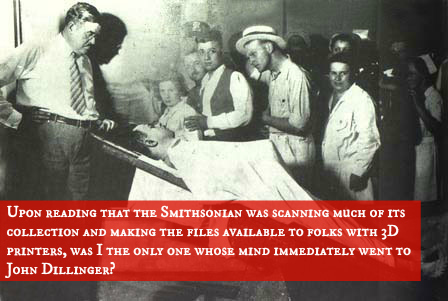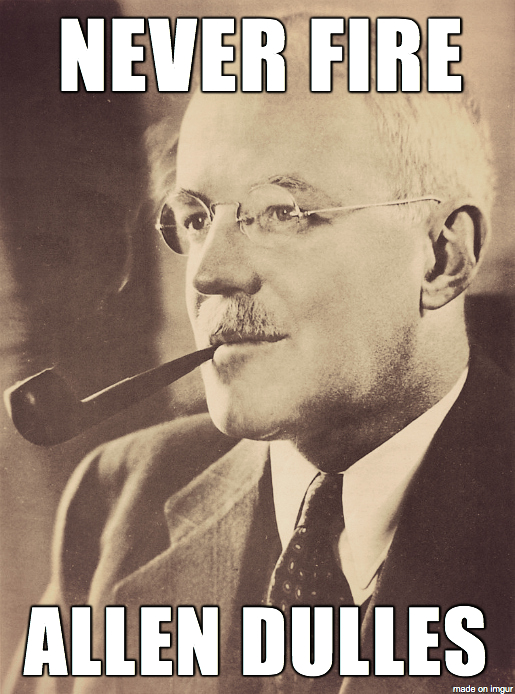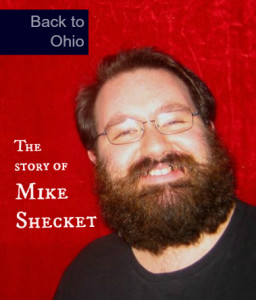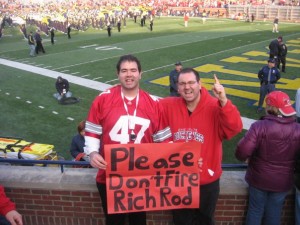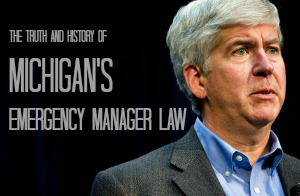Someone from Europe posed the following question on Reddit a few days ago…
“Americans: What exactly happened to Detroit? I regularly see photos on Reddit of abandoned areas of the city and read stories of high unemployment and dereliction, but as a European have never heard the full story.”
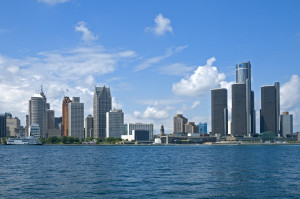
 Here, because I think some of you may find it of interest, is the highest-rated response. It comes from a person who goes by the name of iheartbbq. For what it’s worth, I’m not suggesting that it’s either complete or without error. I think it’s likely a gross oversimplification, for instance, to suggest that all of the corruption we see today in Detroit can be traced back to the rise of the illegal Canadian rum trade during prohibition. Still, though, I think it’s an admirable attempt to distill the history of Detroit into a dozen or so bullet points. Or, at least it’s a good point from which to start a conversation on how we got to where we are today, and how best to move forward.
Here, because I think some of you may find it of interest, is the highest-rated response. It comes from a person who goes by the name of iheartbbq. For what it’s worth, I’m not suggesting that it’s either complete or without error. I think it’s likely a gross oversimplification, for instance, to suggest that all of the corruption we see today in Detroit can be traced back to the rise of the illegal Canadian rum trade during prohibition. Still, though, I think it’s an admirable attempt to distill the history of Detroit into a dozen or so bullet points. Or, at least it’s a good point from which to start a conversation on how we got to where we are today, and how best to move forward.
• Detroit is founded in 1701 as a trading outpost on the edge of the Detroit River, first main terminus on the westward expansion.
• Detroit rises in power as a logging hub, the vast deciduous and northern coniferous forest are leveled and shipped by boat back east, creating the original fortunes of the city.
• The late 1800s saw a growing city often called the Paris of the West. Major building projects began in the city’s hub and rail lines were routed to Detroit from the east through Canada and out to Chicago. The lumber barons were investing in real estate and the architecture of the time reflects magnificently. The hub and spoke road system is adopted, but crucially is not rigidly adhered to. Main line roads radiate from the downtown hub, but secondary roundabouts and opposite diagonals are not constructed.
• At the turn of the century, the auto industry explodes. Albert Kahn creates an architectural model still in use today that allows for rapid construction of space-efficient factories. Factories are built almost as fast as they can be. At this point, Detroit begins installing a street car system on its main line roads. Henry Ford establishes the $5 day. Ford is viciously anti-union and rumblings of union formation at the time are knocked down by Ford’s generous pay levels. Word spreads and poor black southerners begin moving to Detroit in droves. The city housing stock explodes to accommodate this new population and vast tracts of land become identical row houses all built in the 1910-20 era.
• The first section of roadway is paved with concrete in Detroit on the Woodward corridor. As poorly maintained and expensive brick and dirt roads give way to durable concrete roads, more people begin using cars and the auto industry continues expansion.
• Prohibition hits Detroit hard. The city’s proximity to Canada encourages illicit importation of alcohol and a vast underground of speakeasies. Organized crime takes hold in Detroit and the City government becomes corrupted. Government culture shifts towards bribery and intimidation.
• By the start of WWII, Detroit is economically the most powerful city in the country. Its companies are making money on both cars and foreign military equipment contracts. When the US enters the war, all manufacturers are retasked to produce “the arsenal of Democracy” tanks, planes, military trucks, etc roll out of Detroit’s factories and while many other cities suffer under rations, Detroit profits. Due to the draft, many of the factory workers are at war and although 2.5M African Americans registered for the draft, a maximum of 700,000 were declared fit and served at any given time. Due to the economic opportunity in the factories, even more African Americans moved to Detroit. Following the war, the imbalance in certain government contracts meant some companies had advanced technology relevant to consumer markets while others did not. Ford and General Motors benefited greatly with technologies applicable to passenger cars while Packard and Chrysler struggled after receiving mostly airplane-related contracts. Returning GIs found a city with an increasingly black racial makeup and racial tensions began escalating.
• By the 1950s Detroit was at the height of its population with 1.8M, but violence became endemic owing to racism and government corruption. By this time the Teamsters, UAW and various Gangsters had staggering political influence and were bending the laws to the benefit of labor and detriment of business. The Eisenhower Freeway System comes to Detroit and slices the city to shreds. The highly inefficient hub-and-spoke road system means regular cross-city transit is very slow. The freeway system is routed indiscriminately through poor and immigrant neighborhoods. Whole neighborhoods are demolished or cut in two, fragmenting the entrenched communities. It is very obvious that rich cities are carefully routed around. This sows deep seeds of resentment amongst poorer Detroiters. The completed freeway system allows for living in outlying towns formerly too far for a practical commute. Automobile ownership soars and ridership on the street cars plummets, by 1956 the street car lines are closed. 180,000 Detroiters have left by 1960. Chrysler issues major layoffs in 1961. Packard goes out of business and the mile long Packard Plant closes.
• It’s a hot summer day in 1967. A police raid on an illegal bar escalates to police brutality and African American retaliation. The incident was the match that lit the fuse on a powder keg. Five days of rioting left the city decimated. 43 dead, 1189 injured, more than 7000 arrests, and more than 2000 buildings destroyed. The riots were viewed by whites as a sign of things to come and what had been a slow stream of whites leaving the city for the suburbs exploded to a flood. White flight was in full effect. By 1980 470,000 Detroiters have left.
• The Coleman Young era is a city descending into madness. Rapid depletion of the city population, an incredibly inept and corrupt government, and the rise of crack cocaine as the street drug of choice lead to extreme violence. Although the police force is up, the police are not much better than the criminals. Young is known to have had shady dealings with a great number of organizations, but no police organization will investigate him. It is during this era that massive projects are undertaken to attempt city revitalization. The Renaissance Center, People Mover and Joe Louis Arena included. One of the most controversial was the completion of the Poletown Plant, a GM plant built after the mayor evicted a large portion of neighborhood and razed it. Considerable city funds were directed away from fundamentals and towards these ends. The effects of these large projects were fragmentation of neighborhoods and bad blood between residents and the government-business partnerships. In 1989, the iconic Michigan Central Station closes. A city income tax on residents, workers, and businesses is established to supplement dropping property tax revenues.
• 1994, the North American Free Trade Act passes. Ross Perot’s prediction is correct and the biggest sucking sound in the country is centered right over Detroit. The auto industry races to set up “maquiladora” along the border of Mexico. These towns are little more than dusty villages but in five years they’d be filled with factories churning out subassemblies with zero value added tax or tariffs imposed. Local suppliers and large specialized sub-assembly plants in Detroit begin closing, labor rates in Mexico under $2 an hour which puts American workers out of competition. The same model will be applied when China woos manufacturers in the 2000s, but their ~75 cent labor rates are even more enticing.
• By the late 90s projects to restore downtown begin. Massive sporting arenas (Ford Field and Comerica park) are constructed while neighborhoods continue being hollowed out. The renovation of downtown continues through the early 2000s and defunct neighborhoods such as Brush Park and Corktown are being purchased by speculators. The city government is heavily in debt, however in 2003 it’s not running deficits. As the city enters the new millennium, its population is below 1M for the first time since the 1920s
• The housing and banking crisis cripples the city. Rising property values plummet and speculators and developers pull out. The city pushes on with ambitious riverfront projects hoping to lure citizens downtown. Automakers and suppliers lay off thousands and the city’s revenue disintegrates. Jefferson North plant closes. Mayor Kwame Kilpatrick is indicted on corruption charges. The police force is sliced down and police respond primarily to violent crime calls only. A series of police commissioners are fired following corruption investigations.
• Mayor Dave Bing is elected and his straight-talking, no baloney style chafes city council. The new mayor proposes bold plans to bring the city finances in line with its receipts, including closing down sections of the city and relocating population, selling or leasing Belle Isle, and restructuring the city charter. All are shot down following political infighting. Downtown development has been successful and the downtown district is now a major entertainment location. Investors are buying and renovating major downtown structures formerly vacant. Some downtown neighborhoods are at 100% occupancy, however this effect is concentrated and vast stretches remain vacant and essentially urban prairie. Jefferson North plant re-opens and GM invests heavily in the nearby Hamtramck plant. Special economic zones such as TechTown are centers of innovation. Outlying neighborhoods slowly disintegrate and scrapping rages out of control. Vacant homes in these areas are stripped of plumbing, HVAC, and wiring within days of becoming empty, rendering them essentially useless for market sale. The population is below 700,000 in spite of urban renewal in concentrated areas.
• The Governor of the state declares the city in a financial emergency and appoints Kevyn Orr as emergency financial manager, effectively rendering Detroit’s elected government impotent. Orr analyzes the city finances and offers a 10 year budget plan the council accepts (although primarily a ceremonial vote). Orr files bankruptcy proceedings, which are currently being adjudicated.
• I should add a point about the late 90s early 2000s. During the nationwide housing boom, lax regional zoning restrictions led to developers like Pulte buying enormous tracts on the outside of the metropolitan area and constructing instant neighborhoods at an incredible rate. The greater metropolitan area grew markedly in diameter during this time. Following the market crash in 08, huge numbers of these homes went for practically nothing which in turn drove market values across the city down, making the exodus from Detroit in the next four years even easier. The greater metropolitan area faces a serious issue of infrastructure upkeep, as so many new roads, drainage systems, electrical, gas and water lines were laid that flagging municipal tax revenues will cause major maintenance issues in the next decade. The city of Detroit operates the central water supply system for the entire region, supplying cities as far away as Flint, and could in the future be a major sale or source of income from the region.
[The entire Reddit thread, which now has over 1,400 comments, can be found here.]

